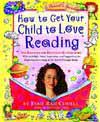- Categories:
Esme Raji Codell Expounds on Potato Pedagogy and the Power of Books
Esme Raji Codell, and yes, she was named for Salinger's Esme -- came to national attention with her first book, Educating Esme: Diary of a Teacher's First Year (Algonquin). The insightful, funny, unbelievably energetic Codell began her first year of teaching in an underachieving, charmless public school in a very poor section of Chicago. She chronicled the experience and gave readers a glimpse of what a gifted teacher can do even in the humblest environments. The book was named Memoir of the Year by ForeWord Magazine and won the Alex Award for Outstanding Book for Young Adult Readers. She also won first place for national education reporting from the Education Writers Association for her public-radio reading.

Nicki Leone, manager or Bristol Books in Wilmington, North Carolina, recently described How to Get Your Child to Love Reading as "the best children's reference book I've seen since Jim Trelease first did The Read-Aloud Handbook years ago. It's devoted to helping parents integrate reading into every part of a child's life. It offers invaluable help for booksellers, too. There is enough in this book for five year's worth of display ideas and help in answering all those questions from customers who don't quite know what they want or are trying to buy a book for a child they don't know well."
Codell, known professionally as Madame Esme, lives in Chicago with her husband and son. BTW recently had the opportunity to speak with her.
BTW: You clearly have two primary passions -- children and literature. Where does the potato fit in?
ERC: The whole idea of the book started with a lowly potato. I realized that if I had nothing but a potato, I could teach a classroom full of children so much -- almost a whole year's worth. I could cut it and show fractions, cut designs for potato prints, plant the eyes and chart their growth. We could make a book of potato recipes or potato stories and poems. I could get books from the public library about potatoes -- talk about the Irish Potato Famine of 1845 -- read true accounts. We could also write to potato-related companies -- Frito-Lay or Playskool's Mr. Potato Head. Children's literature is like the nation's potato -- almost everything can be taught through it. That should be empowering to parents and teachers.… Children's literature presents the whole world to children. That idea was left out of my teacher education, and I hope that teachers will find it here.
I've included "Potato Picks" throughout the book. These are suggested outstanding titles and perfect for read-alouds. They are potatoes to pick when you need a sure-fire hit.
BTW: Kids learn to read in school. Once they go off to grade school, can't parents relax, monitor their kid's reading, and leave the rest up to their teachers?
ERC: Reading is so much more than a skill, it's a lifestyle. I've found that parents definitely lack confidence. They are frustrated because they work full time and don't think they have the time. Or their children "don't like to read," or they don't know what to read. I like to think of home as a school away from school. Any parent can be their child's best teacher. Through books, parents can give a child an education or supplement one. If you know all the best of children's literature, even when schools fail, the children don't have to.
BTW: The book is packed with titles, activities, theories, biographies of authors and educators, and advice to the book-lorn. You have recipes and magic shows, lists of books about underpants. You even bad mouth pizza. Can busy parents become overloaded?
ERC: It's got a lot of stuff. I don't want parents to be overwhelmed. It's like The Joy of Cooking or The Joy of Sex -- take it a little at a time. The more that parents know about books the better. Children don't necessarily need to be rewarded for reading or perhaps they might benefit more with other ways of rewarding reading -- besides pizza. What about rewarding them with things that build on communication and the love of reading -- making pizza together, coupons to stay up late and read, hobby items -- things that bring families closer together.
BTW: Some kids don't like to read or don't read well.
ERC: It's not that hard to think of ideas for reading. It's hard to get kids in a place where they're receptive -- especially young adults. I see the analogy with dating: You go on a lot of dates and don't necessarily connect with anyone. You keep on going out and find the right one. Required reading can be like assigned reading dates -- most people don't connect that way. Just like booksellers, I want to put great books in the hands of great children. No child is a lost cause. I think reading aloud is essential. Reading aloud to a child is a civil rights issue, they must have it. Older children, too. Don't get snobby about picture books. They are great for the reluctant or not-that-proficient reader to read to younger children. Also children love when grown-ups love something. They like being read to and sharing something that the adult loves.
BTW: There are 3,000 titles mentioned in the book. Have you read most of them?
ERC: I've read every single one of them aloud to real children. --Interviewed by Nomi Schwartz

